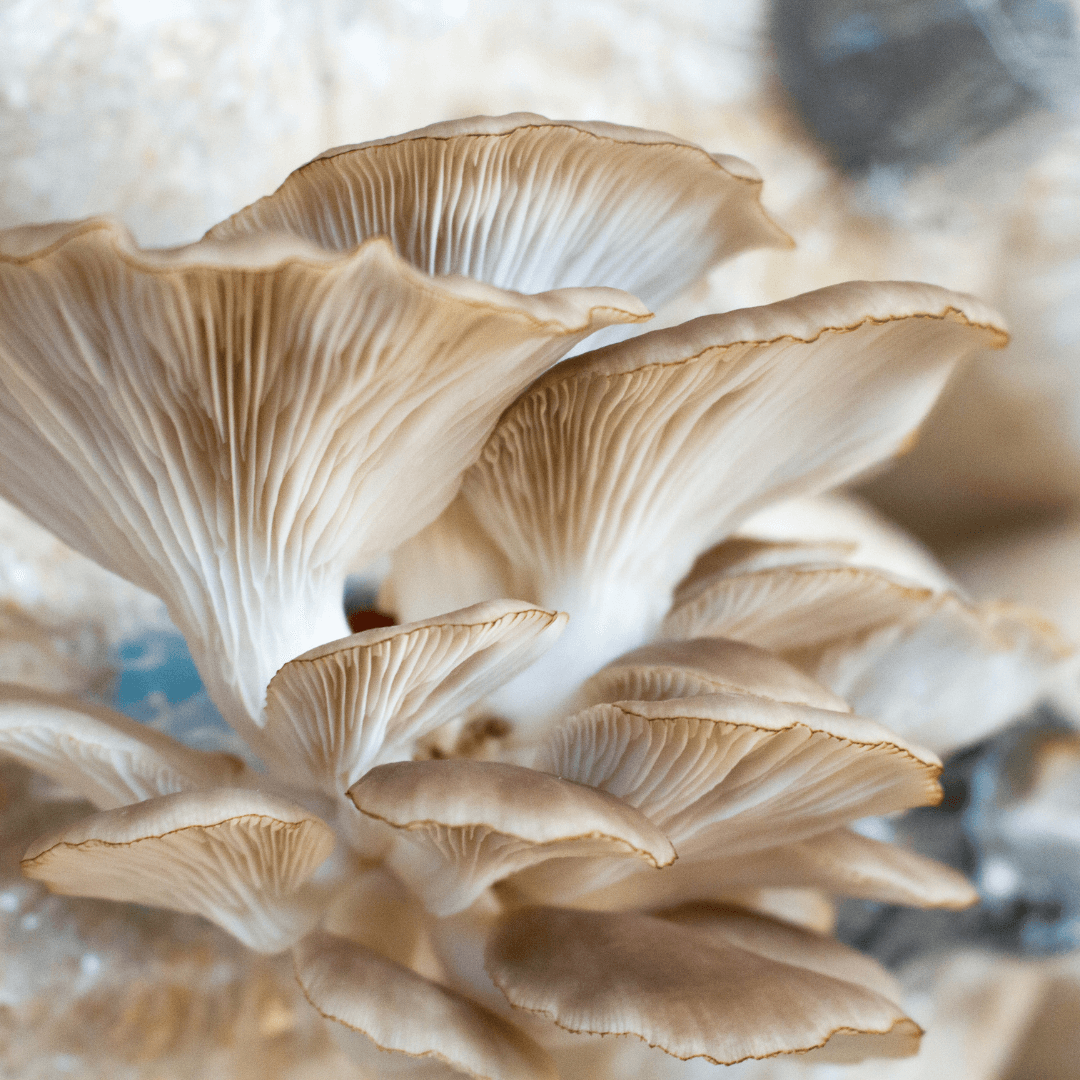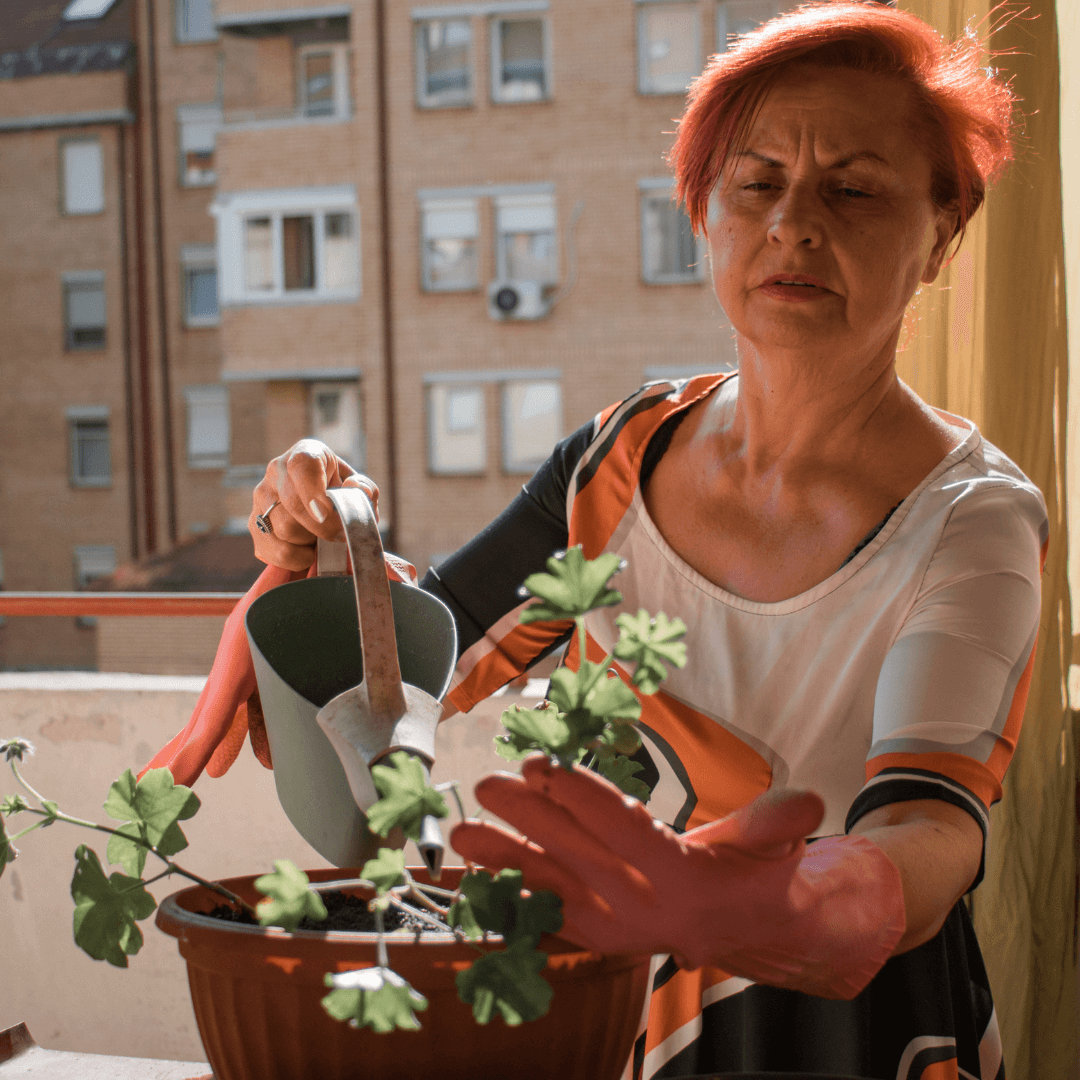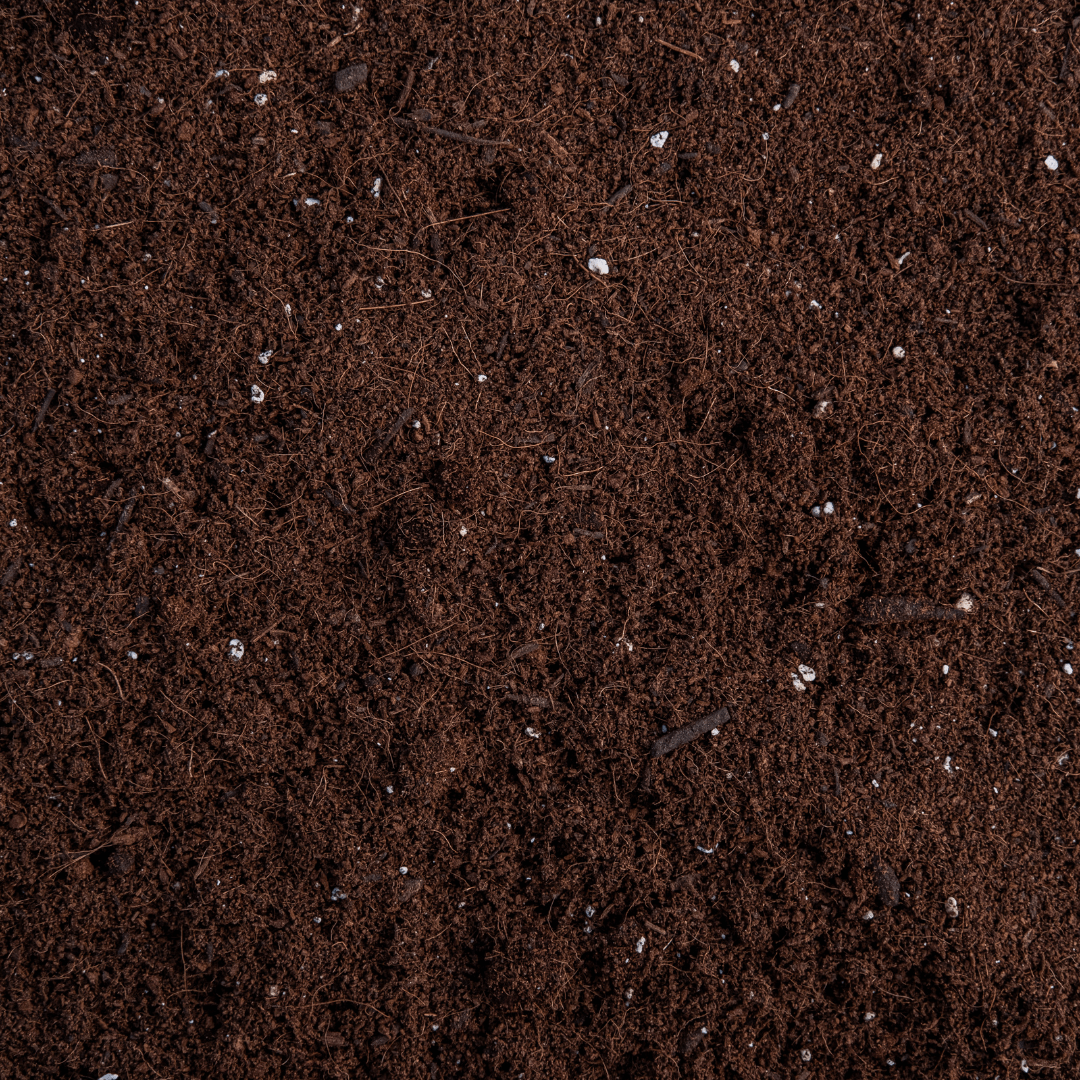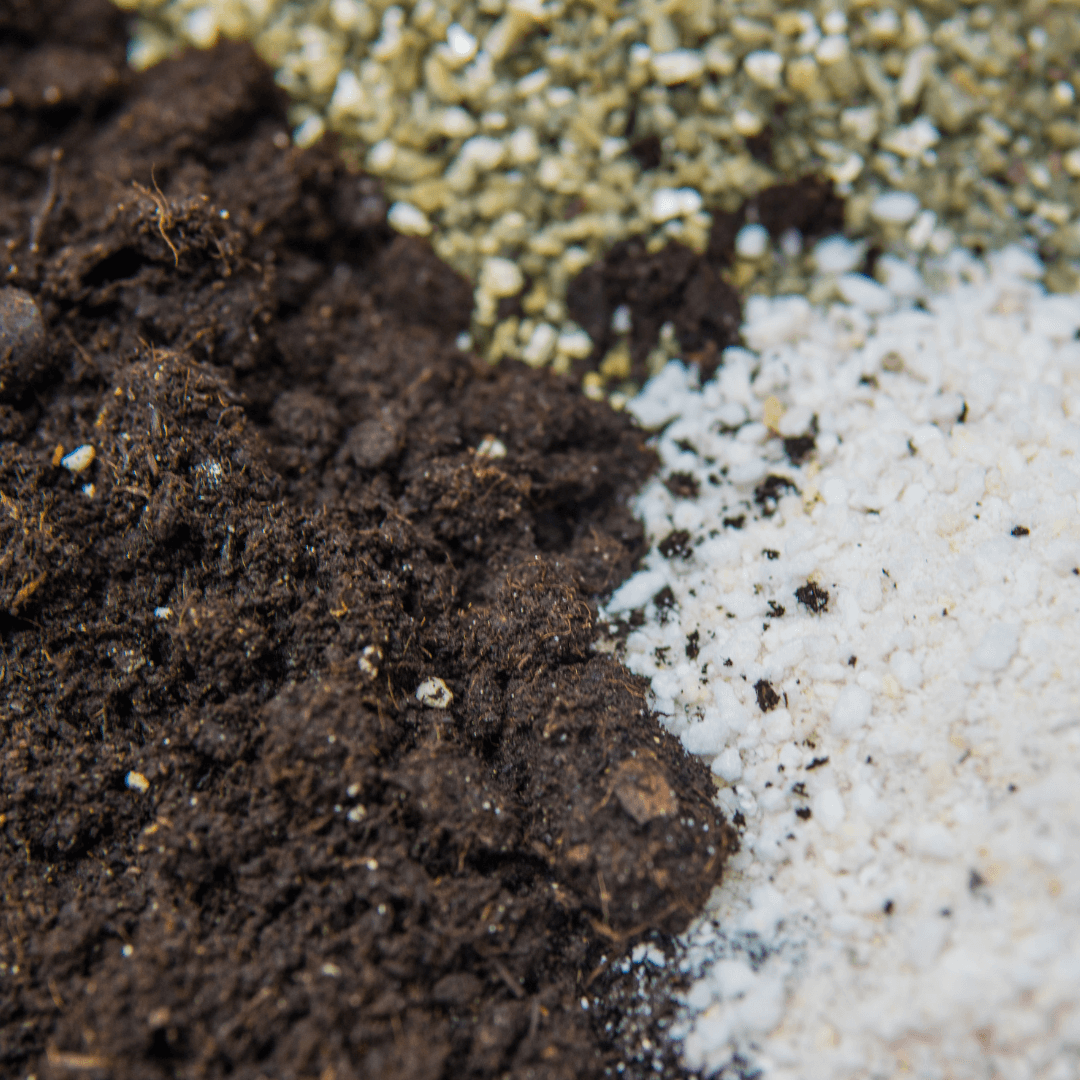Mushroom compost, a byproduct of the mushroom farming industry, is a popular soil amendment that can enhance plant growth, improve soil structure, and provide a range of essential nutrients for your garden. This article will explore what is mushroom compost, its benefits, potential concerns, and how to use it effectively in your garden to boost the health and productivity of your plants.
Mushroom compost not only offers benefits for your garden, but it's also an environmentally friendly option. By using this byproduct of the mushroom industry, you're repurposing waste materials that would otherwise be discarded, reducing your environmental footprint while improving your garden's health and productivity. Now, let's dive deeper into the world of mushroom compost to help you decide on its use in your garden.
Understanding the Composition of Mushroom Compost
Mushroom compost is a nutrient-rich soil amendment made from the spent mushroom substrate used in commercial production. The substrate typically consists of organic materials, such as straw, peat moss, gypsum, corn cobs, and other agricultural byproducts. These materials are combined and pasteurized to eliminate weed seeds and harmful pathogens, creating an ideal mushroom-growing medium.
The substrate becomes enriched with nutrients and beneficial microorganisms during the mushroom-growing process as the fungi break down the organic materials. Once the mushroom harvest is complete, the remaining substrate, "spent mushroom compost" or "spent mushroom substrate," is no longer suitable for further production. However, it has become a valuable resource for gardeners. It contains a rich blend of nutrients, including nitrogen, phosphorus, potassium, trace minerals, and organic matter, that can improve soil structure, water retention, and overall plant growth.
What is Mushroom Compost, and Where did it Come From
Mushroom compost, or spent mushroom substrate or mushroom soil, is the residual growing medium used to cultivate mushrooms. It consists of various organic materials, including straw, peat moss, gypsum, and other ingredients, blended and pasteurized to create a nutrient-rich environment for mushrooms to grow. Once the mushrooms have been harvested, the remaining compost can be repurposed as a soil amendment for gardening.
While mushroom compost was initially considered a waste product, its value as a soil amendment has led to its growing popularity among gardeners. Not only does it offer a sustainable option for improving garden soil, but it also supports the circular economy by reducing waste in the mushroom industry. So, by choosing to use mushroom compost, you're benefiting your garden and contributing to a more sustainable future.
Vegetable Seed Vault Kit | 35 Variety Pack

$29.95
$49.95
Ultimate Survival Seed Vault: 16,000+ Non-GMO Heirloom Vegetable Seeds for Emergency Preparedness Introducing the Seed Vault Kit, your all-in-one solution for emergency preparedness and sustainable gardening. This premium seed kit contains over 16,000 non-GMO, Heirloom, Non-Hybrid, and Open Pollinated seeds,… read more
Benefits of using mushroom compost in gardening
Some of the many benefits of using mushroom compost in your garden include:
- Improved soil structure: Mushroom compost can help improve soil structure, making it more porous and retaining water and nutrients better. This can lead to stronger root growth and more vigorous plant growth. I love using this in our raised garden beds to help make the soil less dense.
- Increased nutrient availability: Mushroom compost is rich in nutrients like nitrogen, phosphorus, and potassium, which are vital for healthy plant growth. These nutrients are released slowly, providing a steady supply to your plants throughout the growing season.
- Enhanced microbial activity: Mushroom compost contains beneficial microorganisms, including bacteria, fungi, and actinomycetes. These microorganisms are crucial in breaking down organic matter and making plant nutrients available. They also help suppress harmful pathogens and pests, promoting a healthy and balanced garden ecosystem.
Mushroom compost is a versatile addition to any garden, offering benefits for many plants. Many plants can benefit from improved soil structure, increased nutrient availability, and enhanced microbial activity from mushroom compost from vegetables and herbs to flowers and even some fruit-bearing plants. Incorporating this valuable resource into your garden can create a more resilient and productive growing environment for your plants.
Potential concerns with mushroom compost
While mushroom compost offers many benefits, there are a few potential concerns to be aware of when using it in your garden:
High salt levels
Some mushroom compost can have high salt levels, which may negatively affect plant growth, particularly for salt-sensitive plants. To avoid issues, it's essential to test the salt content of the compost before using it and, if necessary, dilute it with other organic materials like aged manure or well-rotted compost.
- Effects on plant growth: High salt levels can lead to stunted growth, reduced yields, and even plant death in some cases. Be cautious when applying mushroom compost to your garden, and monitor your plants for signs of salt stress.
- Precautions: To reduce the risk of salt damage, consider using mushroom compost as a top dressing rather than directly incorporating it into the soil. This can help prevent salt build-up around the root zone and reduce the risk of adverse effects on plant growth.
Presence of weed seeds
While mushroom compost is typically pasteurized to kill weed seeds and pathogens, there is still a chance that some weed seeds may survive the process. To minimize the risk of introducing weeds to your garden, source your compost from a reputable supplier and be vigilant about weed control.
- Weed control strategies: Regularly inspect your garden for new weed growth and promptly remove weeds to prevent them from becoming established. Use a layer of mulch over the compost to suppress weeds and help retain moisture.
The possible presence of mushroom spores
Mushroom spores may be present in spent mushroom compost. While this is not usually a problem, it's important to be aware that these spores could potentially lead to the growth of unwanted mushrooms in your garden. If you notice mushroom growth, remove and discard them to prevent spreading.
How to Use Mushroom Compost in Your Garden
Mushroom compost can improve your garden soil and support plant growth. Some common uses include:
Soil amendment
Mix mushroom compost into your garden soil to improve its structure, increase nutrient availability, and support beneficial microorganisms. Add a 2- to 4-inch layer of compost over your garden beds and then work it into the top 6 to 8 inches of soil. This will help create a nutrient-rich environment for your plants to thrive. I like to add it as soon as the weather warms in the spring, giving it time to make sure it's broken down and won't burn small seedlings.
Top dressing
Apply a layer of mushroom compost around the base of your plants to act as a slow-release fertilizer and help retain moisture. This can also help suppress weeds and protect plant roots from temperature extremes. Be careful not to smother the plant stems or cover the foliage.
When using mushroom compost in your garden, monitoring your plants for any signs of stress or nutrient imbalances is essential. Regularly assessing your plants' health and adjusting your compost application rates as needed ensure that your garden continues to thrive. While mushroom compost offers many benefits, it's just one tool in your gardening toolbox. Combining it with other organic materials, soil amendments, and good gardening practices will help create a healthy, productive garden.
Using mushroom compost in vegetable gardens, herb gardens, and flower beds
Mushroom compost suits most garden plants, including vegetables, herbs, and flowers. However, some plants may be more sensitive to the high salt levels found in some mushroom composts. Monitor your plants for signs of salt stress and adjust your application rates as needed.
Vegetable gardens
- Suitable vegetables: Mushroom compost is generally well-suited for growing vegetables like tomatoes, peppers, and cucumbers, which can tolerate higher salt levels.
- Precautions: Avoid using mushroom compost on salt-sensitive vegetables like beans, lettuce, and strawberries, or mix it with other organic materials to dilute the salt content.
Popular Herb Seeds for Planting | 35 Variety Pack

$29.95
$49.95
Heirloom, non-GMO herb seeds for indoor and outdoor home gardens! Introducing our 35 Herb Seeds Variety Pack, the ultimate selection for any herb garden enthusiast! This premium assortment includes heirloom herb seeds that are non-hybrid, open-pollinated, and non-GMO, ensuring you get only… read more
Herb gardens
- Suitable herbs: Most herbs, including basil, rosemary, and sage, can benefit from mushroom compost. The increased nutrient availability and improved soil structure can lead to more vigorous growth and better yields.
- Precautions: Be cautious when using mushroom compost with salt-sensitive herbs like parsley and cilantro. Monitor the plants for signs of salt stress and adjust your application rates as needed.
Flower beds
- Suitable flowers: Many ornamental flowers, such as marigolds, zinnias, and sunflowers, can thrive in soil amended with mushroom compost.
- Precautions: Some flowers, like azaleas and rhododendrons, prefer acidic soil and may not respond well to the alkaline nature of mushroom compost. Researching your specific plants' needs and adjusting your compost application accordingly is essential.
In conclusion, mushroom compost is valuable to any gardener's toolbox. Its numerous benefits, from improved soil structure to increased nutrient availability, can help you create a thriving and productive garden. Understanding the composition, benefits, and potential concerns of mushroom compost and using it effectively in your garden can support healthy plant growth and contribute to a more sustainable future.
 Frequently Asked Questions (FAQs) - What is Mushroom Compost
Frequently Asked Questions (FAQs) - What is Mushroom Compost
Here are some frequently asked questions about mushroom compost that can help address common concerns and provide useful insights for gardeners.
Q1: Is mushroom compost safe for all plants?
A1: While mushroom compost is generally suitable for most garden plants, some plants may be more sensitive to the high salt levels found in some mushroom composts. Monitor your plants for signs of salt stress and adjust your application rates as needed.
Q2: Can I use mushroom compost for container gardening?
A2: Mushroom compost can be used as a soil amendment in container gardening. Mix it with potting soil or other organic materials to improve soil structure, increase water retention, and provide plant nutrients.
Q3: How often should I apply mushroom compost to my garden?
A3: The frequency of mushroom compost application depends on your garden needs and the types of plants you're growing. Generally, incorporating mushroom compost once or twice a year should be sufficient for most gardens. However, if needed, you can apply it more frequently as a top dressing.
Q4: Can I use mushroom compost as mulch?
A4: Mushroom compost can be a top dressing to help retain moisture, suppress weeds, and slowly release plant nutrients. However, it's essential to avoid smothering plant stems or covering foliage when applying it as a mulch.
Q5: Is mushroom compost safe for pets and wildlife?
A5: Mushroom compost is generally considered safe for pets and wildlife when used appropriately in the garden. However, monitoring your pets and ensuring they don't consume large amounts of compost is essential, as it could cause digestive upset. Always supervise pets when they're around composted materials.
 Q6: Can I make my own mushroom compost at home?
Q6: Can I make my own mushroom compost at home?
A6: Making mushroom compost at home is possible, but it requires access to mushroom-growing materials like spent mushroom substrate, peat moss, and other organic materials. The process also involves pasteurization to eliminate weed seeds and pathogens. While it can be a rewarding project for experienced gardeners, most people find it more convenient to purchase mushroom compost from a reputable supplier.
Seed Safe Survival Seed Kit - 35 Variety Pack

$29.95
$49.95
Seed Safe Survival Seed Kit: The Ultimate Heirloom Collection for Self-Sufficient Gardening Introducing the Seed Safe - 35 Varieties of Heirloom Vegetable, Herb, and Fruit Seeds, the ultimate solution for gardeners who want to secure a bountiful future harvest. This… read more
Q7: How long does mushroom compost last in the garden?
A7: The nutrients in mushroom compost are released slowly over time, providing a long-lasting benefit to your garden. Depending on your soil type, climate, and plant requirements, the effects of mushroom compost can last anywhere from a few months to a couple of years. Monitoring your plants' health and reapplying compost as needed to maintain optimal growing conditions is essential.Q8: Can I use mushroom compost in my compost bin or worm farm?
Q9: How do I store mushroom compost?
Q10: Can I use mushroom compost to grow mushrooms?
A10: While mushroom compost is a byproduct of the mushroom-growing process, it's not ideal for growing new mushrooms, as most of the nutrients have already been used up. If you're interested in growing mushrooms, using a specialized mushroom-growing substrate or kit designed for that purpose is better.






 Frequently Asked Questions (FAQs) - What is Mushroom Compost
Frequently Asked Questions (FAQs) - What is Mushroom Compost

